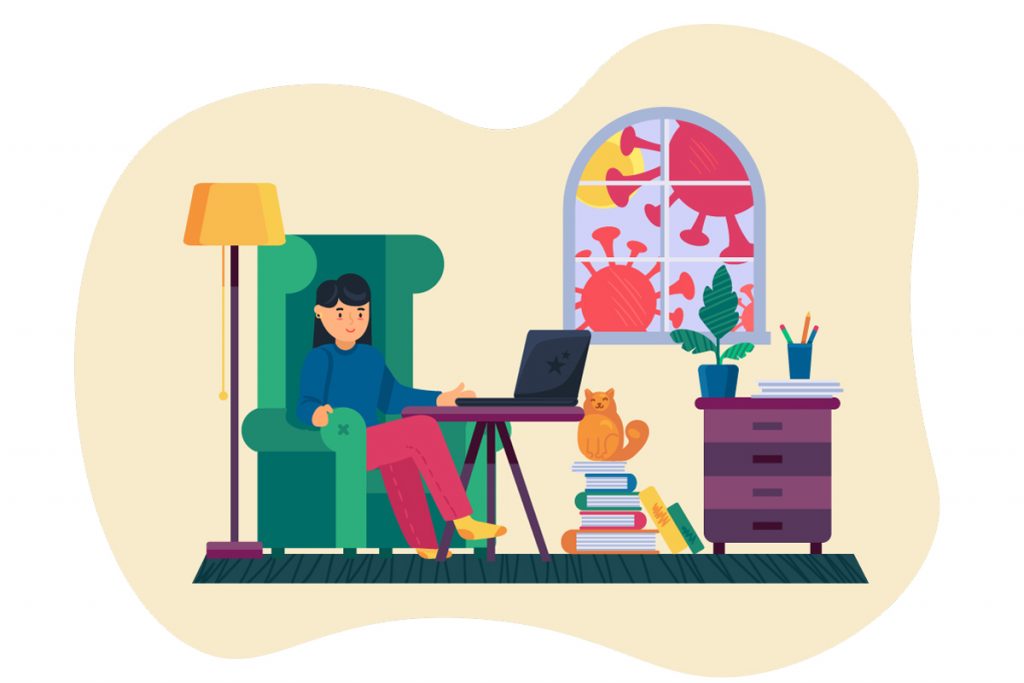
Trauma is the lasting emotional response that can result from living through an event that undermines a person’s sense of physical or emotional safety. Long after the traumatic event occurs, people who have experienced trauma can continue to feel the effects which can impact their ability to function day to day.
COVID-19 has had an effect on everyone’s sense of physical and emotional safety. For individuals who live with a developmental disability and their caregivers, adjusting to life in isolation and significant changes to routine has been particularly difficult.
We are now adjusting to a “new normal” where we will continue to practice physical distancing in most environments and those of us who are able to will wear masks and other personal protective equipment as needed. Things are changing every day as we learn more about COVID-19 and while it is important to stay well informed it is just as important to be aware of how we and those we care for are being impacted.
ConnectABILITY.ca has compiled a list of resources so that individuals with developmental disabilities and their families can find the support and information that they need. You are not alone and help is available.
Please note: if you are experiencing a mental health crisis please contact 911 immediately or present to your nearest emergency department.
Resources for Children and Youth
- Jack.org has created an online hub of COVID-19 youth-focused mental health resources to help students take care of themselves and their peers.
- School Mental Health Ontario provides students with resources and guidance around self-care, reaching out for help and maintaining a positive outlook.
- Woodview Mental Health and & Autism Services is offering virtual ‘walk-in’ mental health counselling during COVID-19. See the attached flyer for more information.
- Kids Help Phone is a 24/7 national support service that provides free professional counselling services to young people through phone, text and live-chat.
- Bounce Back is a free, evidence-based cognitive behavioural therapy (CBT) program providing guided mental health self-help supports for adults and youth over the age of 15.
- AIDE Canada has developed resources and toolkits to support children and youth with autism and intellectual disability deal with stress during this difficult time.
- What’s Up Walk-In provides free virtual mental health counselling to children, youth, young adults and families.
Resources for Adults, Parents and Families
- Health Care Access Research and Developmental Disabilities (HCARDD) offers a variety of free information sheets, webinars, videos and tools to help individuals with an intellectual disability better understand COVID-19 and manage feelings of worry and stress.
- Canadian Association for Community Living (CACL) has developed a robust COVID-19 resource page to provide individuals with developmental disabilities and their families with reliable information and resources, including a section on mental health supports.
- Autism Ontario has put together a list of mental health resources to help people with autism and their caregivers get through this global pandemic.
- Safehaven has developed a Self-Help Corner with resources for staff, parents and families, including fun at-home activities that can help promote positivity and well-being.
- Community Living Ontario’s Staying Connected page offers suggested resources to boost health and wellness such as mindfulness apps, fitness videos and a downloadable guide to educate individuals about normal versus excessive worrying.
- The Council for Intellectual Disability provides videos, easy read guides, and information sheets to help individuals with an intellectual disability look after their mental health.
- Surrey Place has compiled a list of online tools that provide accessible and up-to-date information for individuals with a developmental disability, including tips on reducing anxiety and stress.
- Check out Anxiety Canada’s articles, CARD handouts, mobile app and My Anxiety Plan online courses to effectively manage and deal with anxiety as a result of COVID-19.
- The Ontario Caregiver Organization offers caregiver tip sheets, multilingual resources and an online peer support group for individuals in a care-giving role.
- CAMH provides a variety of mental health resources to help individuals cope with the effects of COVID-19 such as feelings of isolation, stress and anxiety, loss and grief, and stigma and prejudice.
- The Candian Mental Health Association has put together some resources and suggestions to help support mental health at this time of uncertainty.
- Additionally, CMHA branches are open but offering alternative service delivery, for more information, click here.
- To enroll in a free virtual mental health course, click here.
- Wellness Together Canada provides free mental health and substance use supports including modules for addressing low mood, worry, substance use, social isolation and relationship issues.
- The Mental Health Commission of Canada has developed tip sheets to help individuals cope with COVID-19, including strategies to manage ‘return anxiety’ as the lockdown lifts.
Resources for Seniors
- Chatting to Wellness offers free 1-1 chatting sessions over the phone to all seniors, across Canada to help isolated seniors feel connected and reduce stress.
- Bob Rumball has developed a series of Mental Health and Wellness videos for deaf seniors with ASL interpretations.
- The Canadian Coalition for Seniors’ Mental Health shares physical distancing activities, virtual visits toolkits, tips for battling anxiety and mental health support lines for Seniors in Canada.
